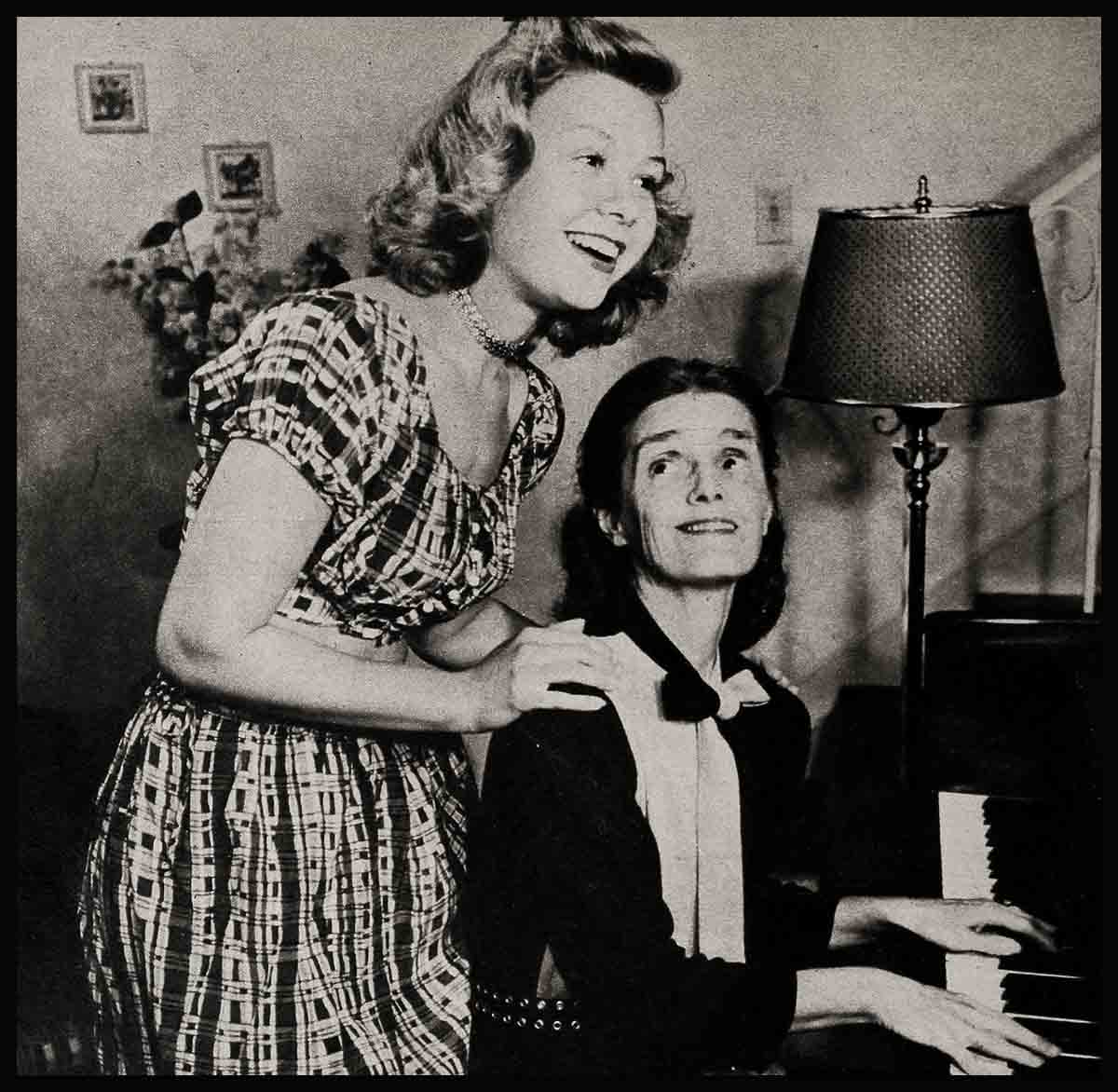
There’s A Man In The House—Vera-Ellen
The day after Vera-Ellen finished her starring ole opposite David Niven in Happy Go Lovely, she headed for Selfridges, one of London’s oldest department stores.
The girl in the dress department recognized her immediately. “What can I do for you, Miss Ellen?” she asked, eagerly.
“I think I’d like a mother-daughter outfit. Something bright and gay . . .”
One hour later. Vera-Ellen raced up to her room at the Claridge hotel, a big carton under her arm. “Mother—I bought us something. Something we’ve always wanted . . .”
Mrs. Alma Rohe watched her daughter unpack two identical, colorful print dresses. “Don’t you think it’s a little bright for a woman my age?” she said, hesitantly.
“Oh, come on, mother. Try it on. I’ll bet we’ll a look like sisters. Tonight we’ll go out and paint be the town red!”
Well—they didn’t exactly paint London red. But Mrs. Rohe put on the dress. And that afternoon, the two women, chattering cheerfully, went to the Savoy for tea. If you’d been sitting nearby, you might have heard the sweet-faced blonde girl say,
“You look wonderful, mother, and honestly—isn’t this fun?” You might have heard the lady sitting opposite her answer, a bit incredulously,
“You know. I really feel wonderful, and— well, this is fun. Let’s do it often.”
That afternoon was a double triumph for Vera-Ellen. She had won two battles, which, had she lost, would have ruined her career as well as the lives of two people.
Her battle started in the late summer of 1949, when life was over for Martin Rohe, VeraEllen’s quiet mannered, soft spoken, amiable father. He had died in his sleep as peacefully as he had lived the fifty-odd years of his life.
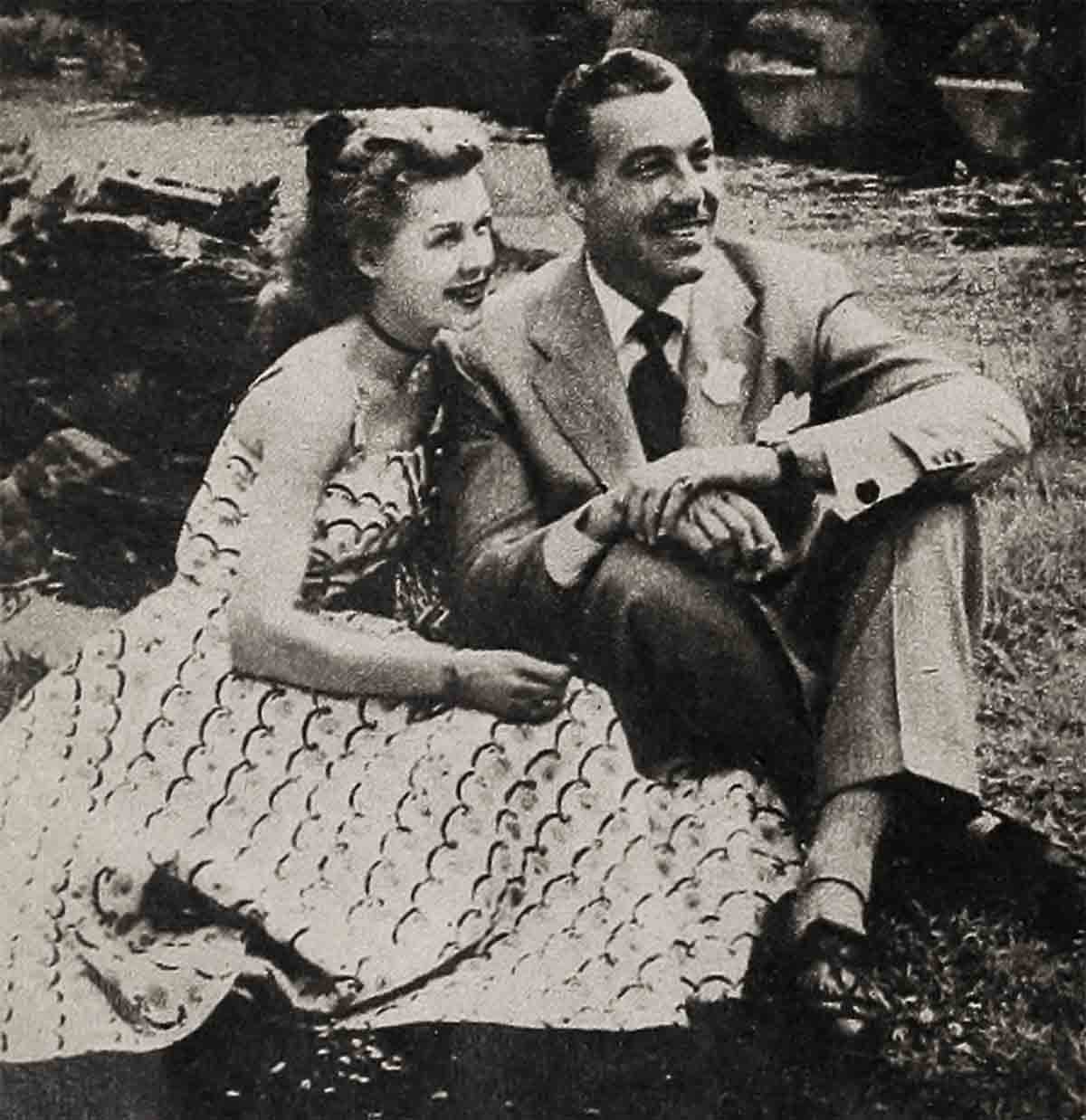
For Vera-Ellen it was the start of a new life, and new responsibilities. An only child, with a mother, who, after three decades of a happily married life, seemed unable to face the world without her husband, Vera-Ellen now had to take over the full burden of the household. She became the man of the Rohe house.
Her San Fernando home is situated in a sleepy, out-of-the-way section, far from traffic, and people, and Hollywood. The peacefulness was ideal as long as her father was still alive. But when he passed away, the quiet became ominous.
At night, every falling leaf sounded like a heavy footstep thumping closer to the house. A bird chirping in the trees was like the turning of a key in the lock. “How silly you are,” Vera-Ellen told herself the first night the two women were alone in the house. “How utterly stupid. . . .” Then she quickly locked and bolted the doors and windows, jumped into bed, and pulled the sheets over her head.
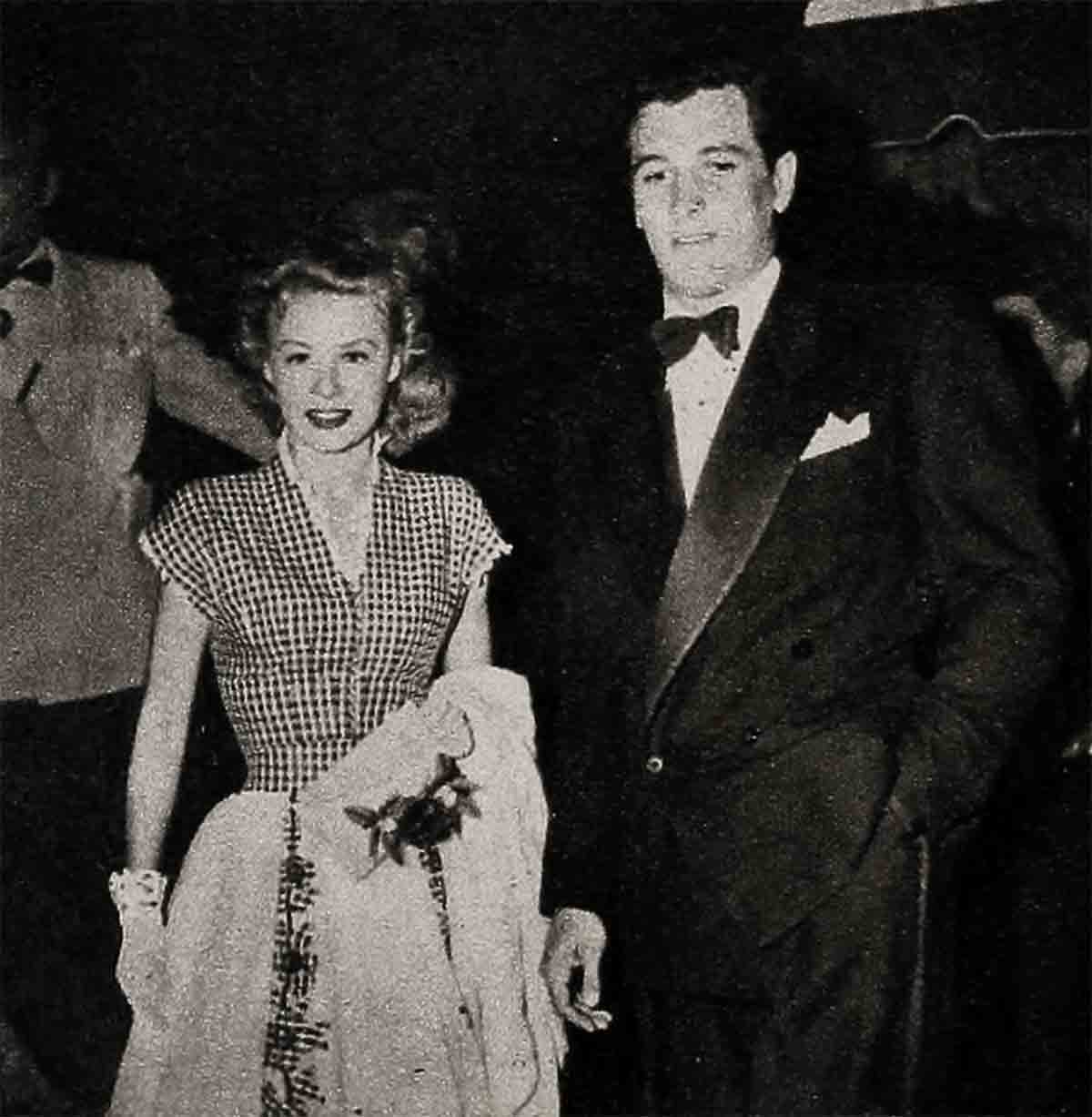
In addition to her own vivid imagination, there was, unfortunately, her mother’s to cope with, too. She would just be dropping off into a jittery imitation of sleep when her mother would tap on the door quavering,
“Did you hear anything, dear?”
Oh no, Vera-Ellen would think nervously. I just heard a giant and a man climbing up the trellis and two thugs pussyfooting around in the garden. Quelling her impulse. to dial the police immediately, she’d manage a firm, “Like what, mother?”
“Well—like people in the cellar.”
After a few hideous nights, they got used to the noises, and a few weeks later ignored them as completely as when Martin Rohe was still alive.
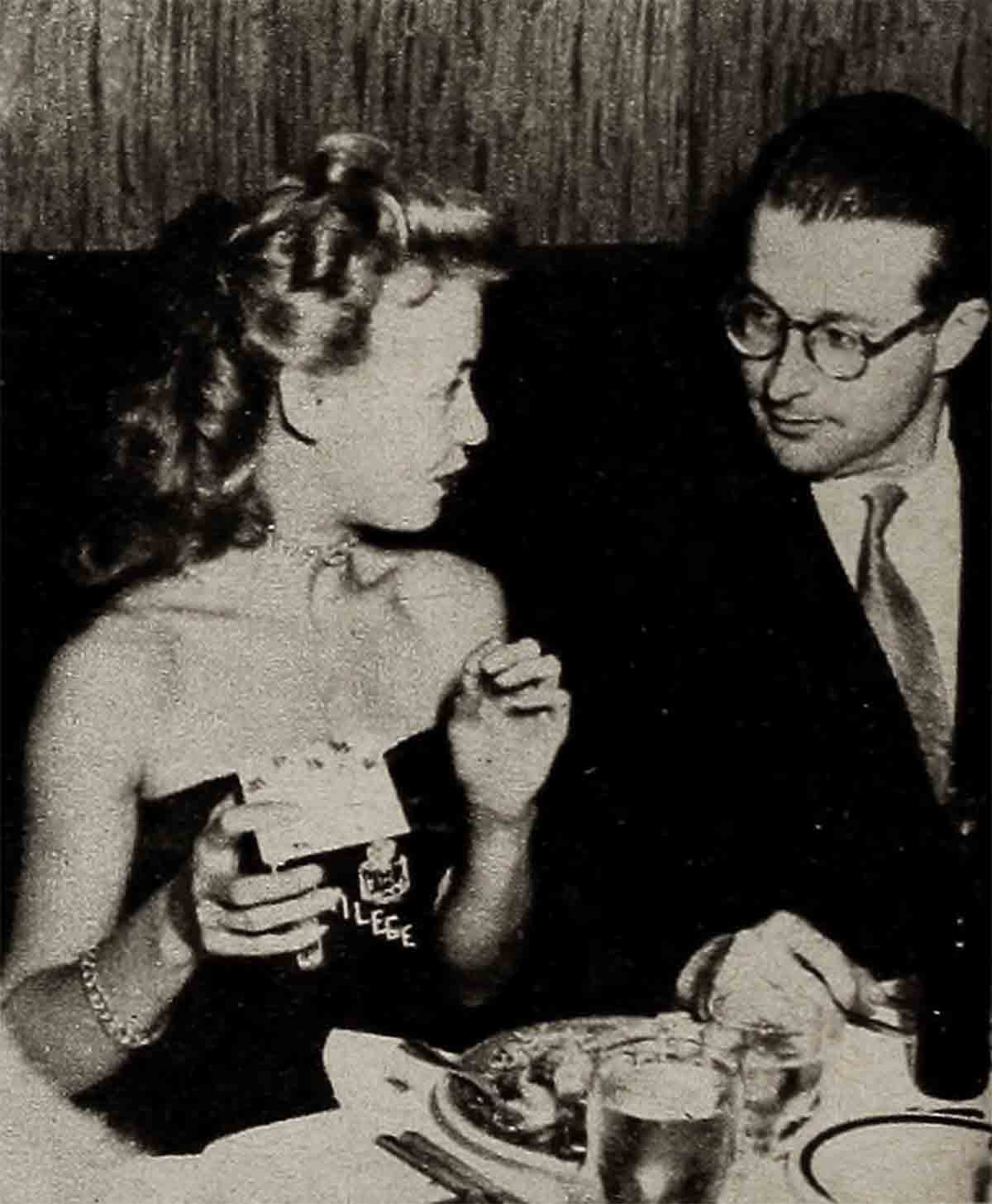
That, Vera-Ellen soon discovered, was only the beginning of the period of adjustment. For herself it was not so difficult because she had her work to think about. For her mother, too frail and spent with grief to do her customary cooking and housework, the days were long and empty. She would greet Vera-Ellen in the evening, red-eyed and haggard, and poor Vera-Ellen, desperately anxious to see her smile again would tell her all the colorful and amusing little details of her own day. She got into the habit of calling her almost hourly from the studio and sharing every tiny tidbit of news with her. Then one night she made a frightening discovery. They were sitting at the dinner-table together, and Vera-Ellen said,
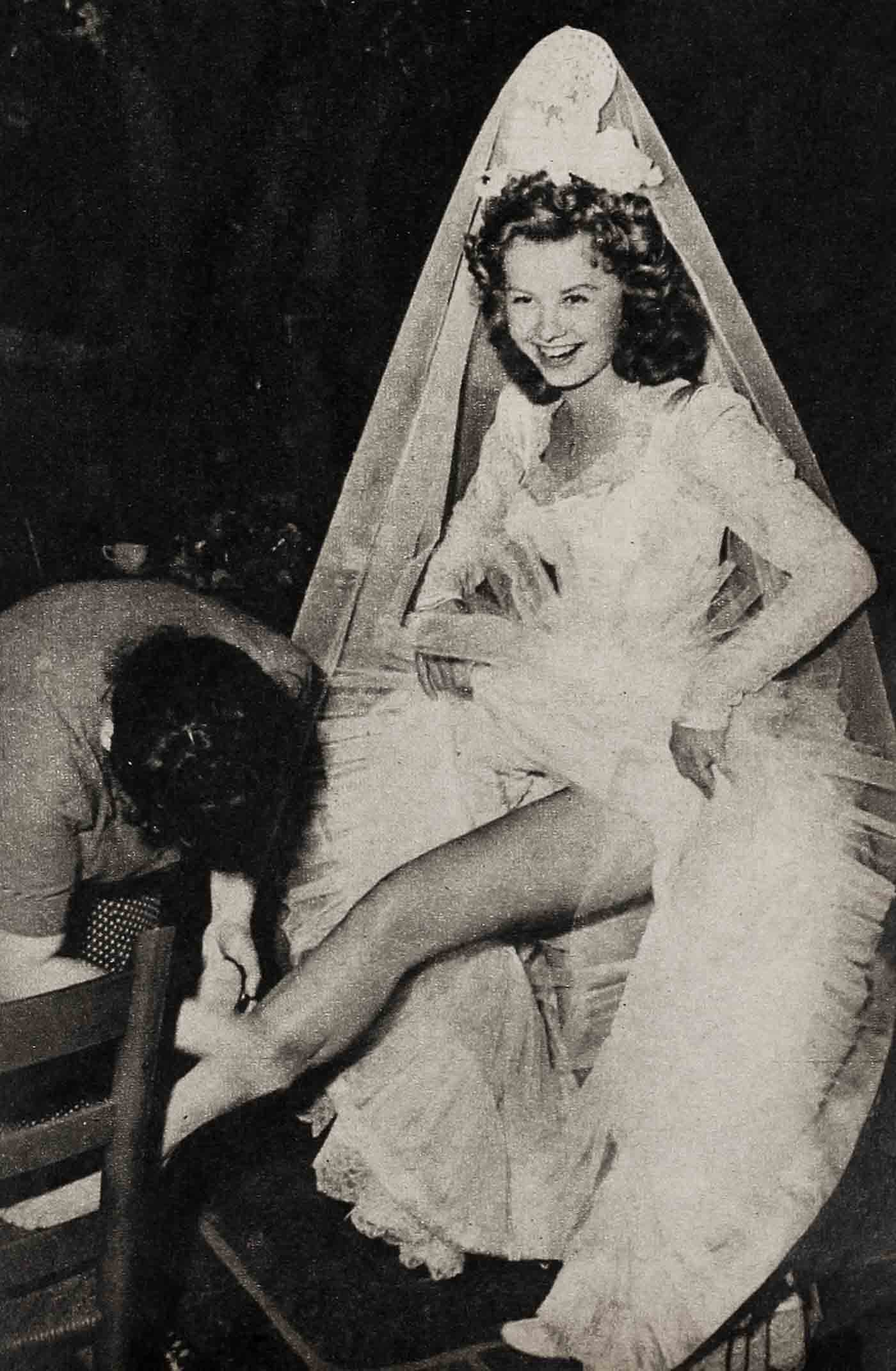
“I saw a dress at Bullock’s, darling, that was absolutely made for you.” There was a little silence, and then her mother said,
“But, dear, I’d have no place to wear Les You get that pretty dress for yourself.”
It’s true, Vera-Ellen thought, shocked and shaken. I’ve let this house become her world. My life is her life. Why, if I should marry, have a family of my own, she’d be lost. It’s all wrong. And at that moment, Vera-Ellen, with only her stout heart and a lot of good common sense to guide her, undertook a job that might have staggered a trained psychiatrist.
“But you have some place to go,” she told her quickly. “You’ve a heavy date with your daughter and her beau tomorrow night. Dinner and the movies. And Sunday, lady, we’re going to church, you and I.”
The dinner and movie date could hardly have been called festive, with little Alma Rohe scarcely eating at all and contributing little to the conversation. Vera-Ellen’s date was a darling, and each time he made her smile he would grin at Vera-Ellen, pleased as a small boy. The Sunday church service was more successful. The sermon lifted their hearts, and the friendly nods of people in the congregation, whom they knew only by sight, made them feel very much at home. As they were leaving the church, a familiar-looking, motherly woman rested her hand on Vera-Ellen’s arm.
“Nice to.see you, child,” she said. “We’ve been wanting to drop in on you, but one hates to intrude. How are you getting on?” It was one of the neighbors the self-sufficient, closely-knit Rohe family had never gotten around to meeting.
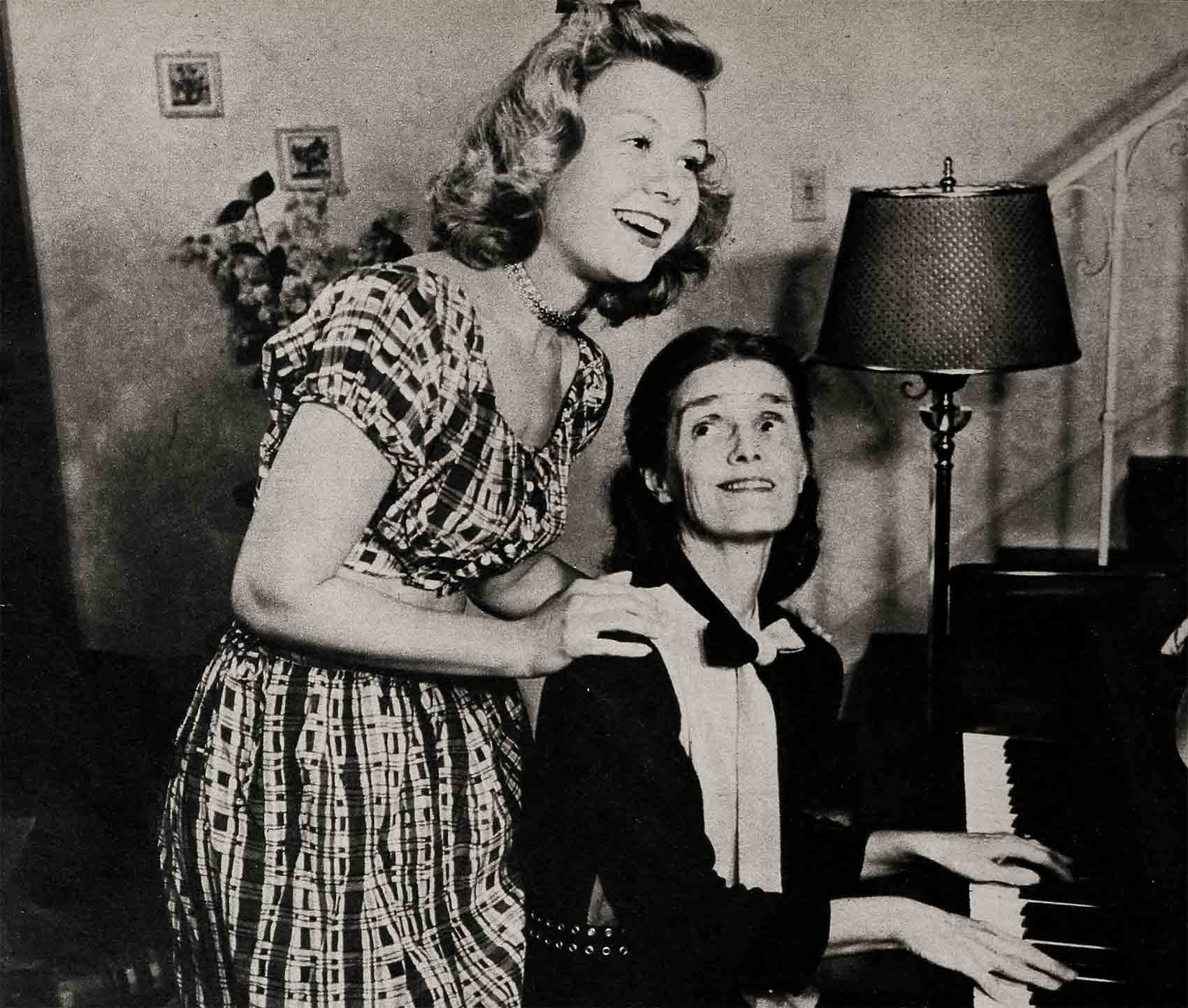
“Quite well, really,” Vera-Ellen smiled, and they all walked home together talking easily of lawns and shrubs and the mysteries of changing fuses as though they’d been friends for years.
Taking off her Sunday hat and putting it in the closet, Mrs. Rohe said, “It’s a good feeling having such nice neighbors.” And Vera-Ellen knew she was on the right track. They went to church again the next Sunday and were warmed once more by the greetings of their fellow worshippers.
Somehow, after that, there were frequently flowers from one neighbor’s garden in the big bowl on the living-room table, a batch of cookies from another new friend’s oven for dessert. Often now there were two coffee cups on the kitchen sink when Vera-Ellen came home, evidence of new-found comradeship.
Then, one golden October evening, Vera-Ellen came home to find the house as slick as a whistle and a big fat chocolate cake for dinner. Her mother greeted her at the door, pink-cheeked and with that slightly breathless air of one who has been mighty busy all day. Vera-Ellen sat down, prepared to give her usual recital of the day’s minutest activities right down to the liverwurst sandwich she’d had for lunch, but to her astonishment her mother was doing the talking.
“And then some of the ladies dropped in,” she was saying,“and we had tea and cinnamon toast.” In the course of the afternoon, Alma Rohe had learned what to do about the blight on their rose bushes, the name of a good plumber in case they ever needed one, and a new recipe for chocolate icing.
“Why, you cute thing,” Vera-Ellen beamed, giving her a big squeeze. “You’re a perfect almanac of information.” And she felt happier than she’d felt in months.
The most miraculous change of all, it seemed to Vera-Ellen—and of course it didn’t come overnight—was her mother’s new attitude toward household catastrophes. The first one that had occurred (soon after Mr. Rohe’s death) had shattered her completely. A bathroom faucet that wouldn’t turn off had flooded the hall, den and staircase before they’d finally—after endless phone calls—gotten a man from the Department of Water and Power to come and fix it. It had cost Vera-Ellen a week’s pay to repair the damage, but more devastating than that had been the damage to her mother’s morale.
“If only your poor father were still alive these things wouldn’t happen,” she had wept over and over, and for days had indulged in tearful reminiscences of his ability to cope with any situation.
Now she began to take current crises in stride. Bringing in some wood for the fireplace, Vera-Ellen contrived to knock against a table shattering one picture frame, two cups, one china parrot and an old and treasured vase. “Oh, and you loved those things,” she murmured contritely.
“Well, Ill love them no longer,” said her mother cheerfully, briskly picking up the pieces. Another day, when her daughter—who upon her father’s death, had inherited the heavy and difficult job of transferring five gallons of distilled water from a huge can into a huge bottle twice a week—spilled the water all over poor Mrs. Rohe, she burst out laughing. There was a time, Vera-Ellen thought, when she’d have cried, remembering how easily dad did this job.
There actually came a day when hey could talk about Martin Rohe without tears. “Remember,” her mother said to her one day out of a clear sky, “how impatient Dad would get over some of your fan letters?” (He had taken complete charge of answering his daughter’s mail.) “Like the ones asking for locks of hair. Remember? I can hear him growling now.” They chuckled softly thinking about it. That was a great moment.
And in the summer of 1950, bes Vera-Ellen went abroad for her first starring role in a British picture, on her daughter’s urging, Alma Rohe went along in a final bid for a new life. Her efforts were climaxed the afternoon she changed into the gay mother-daughter ensemble—when her thoughts turned from the a the future.
As for Vera-Ellen, she didn’t return from England just as the breadwinner anymore. Once again she can make a quick change into a glamorous evening dress and be the life of any party, be it in London, New York, or Hollywood. She has found herself, just as she has helped her mother regain her place in life.
The evening they arrived back at their San Fernando Valley home, Alma Rohe asked Vera-Ellen to sit down in the comfortable grey chair in front of the fire place. Then she disappeared for a couple of minutes and returned with her daughter’s slippers. Puzzled, Vera-Ellen watched as her mother proceeded to put the slippers on her daughter’s feet. There was a mischievous look in Alma Rohe’s eyes when she said, “Darling—you’re the man in the house now.” And the two started to laugh.
THE END
—BY ROBERT PEER
It is a quote. MODERN SCREEN MAGAZINE FEBRUARY 1951





No Comments